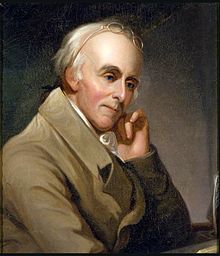Fort Ti American Revolution Seminar, 23–24 Sept.
Fort Ticonderoga has announced its 19th Annual Seminar on the American Revolution, to take place on the weekend of 23–24 September 2023. Unlike last year, this appears to be an in-person event only.
The seminar actually starts on the evening of Friday, 22 September, with a opening reception and Curator Matthew Keagle’s presentation of highlights from the Robert Nittolo Collection related to the War for American Independence.
The scheduled presentations on Saturday are:
Basic registration is $150, but there are discounts for being a Fort Ti member, registering early, and registering online, so that if one checks all the boxes the cost goes down to $100. Registering early enough also signs one up for box lunches on both days and the informal group dinner on Saturday evening. Register starting here (but if you’re a Fort Ti member, sign into the website first).
The seminar actually starts on the evening of Friday, 22 September, with a opening reception and Curator Matthew Keagle’s presentation of highlights from the Robert Nittolo Collection related to the War for American Independence.
The scheduled presentations on Saturday are:
- Justin B. Clement, “The Black Servants of Major-General Gilbert du Motier, Marquis de Lafayette”
- Isabelle J. Courtney, “In the Wake of the British Retreat: Sir Guy Carleton’s Book of Negroes and the Enslaved Population of Rhode Island”
- Dr. Jen Janofsky and Wade P. Catts, “‘Naked and Torn by the Grapeshot’: Fort Mercer and the History, Archaeology, and Public Perceptions of a Mass Burial Space at Red Bank Battlefield Park
- Dr. Friederike Baer, “Hessians: German Soldiers in the American Revolutionary War”
- Dr. Armin Langer, “Alexander Zuntz in America: A Hessian Army Supplier Turned New York Jewish Community Leader and Businessman”
- Jack Weaver, “The Customs and Temper of Americans?: Germans and the Continental Coalition, 1775–1776”
- Dr. Timothy Leech, “Was There an Internal Patriot Coup in Massachusetts beginning April 20, 1775?”
- Dr. Stephen Brumwell, “Fighting Rebellion from America to Jamaica: The Experience of Alexander Lindsay, Lord Balcarres”
- Mark R. Anderson, “The Rise, Disgrace, and Recovery of Timothy Bedel”
- Don N. Hagist, “New Views of Fort Ticonderoga and Burgoyne’s Campaign”
Basic registration is $150, but there are discounts for being a Fort Ti member, registering early, and registering online, so that if one checks all the boxes the cost goes down to $100. Registering early enough also signs one up for box lunches on both days and the informal group dinner on Saturday evening. Register starting here (but if you’re a Fort Ti member, sign into the website first).


